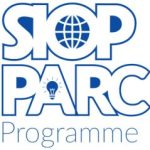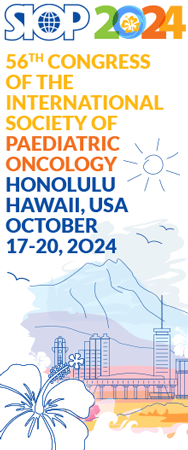 The PARC Committee is pleased to announce that the Nai-Kong and Irene Cheung Family (NKICF) Career Development Award provides funding to clinical investigators associated with and working with PARC-affiliated cooperative groups that operate in low- and middle-income countries (LMICs).
The PARC Committee is pleased to announce that the Nai-Kong and Irene Cheung Family (NKICF) Career Development Award provides funding to clinical investigators associated with and working with PARC-affiliated cooperative groups that operate in low- and middle-income countries (LMICs).
 The 2024 NKICF Career Development has been awarded to Dr. Prasanth Srinivasan (India) who will study Pediatric High-Grade Mature B-cell Non-Hodgkin Lymphoma. Congratulations Dr. Srinivasan!
The 2024 NKICF Career Development has been awarded to Dr. Prasanth Srinivasan (India) who will study Pediatric High-Grade Mature B-cell Non-Hodgkin Lymphoma. Congratulations Dr. Srinivasan!
Dr. Prasanth Srinivasan is a Pediatric Oncologist in Cancer Institute (WIA), Adyar, Chennai, India. He did his undergraduate studies in Madras Medical College, Chennai, and got his MD in Pediatrics from PGIMER, Chandigarh, India. Then, he pursued his DM in Pediatric Oncology in AIIMS, New Delhi, India. His fields of interest include Pediatric ALL, NHL, Neuro-oncology and HSCT. He is also equally interested in the supportive care of children with cancer.
Summary of Research Study
The survival rates of Mature B-cell non-Hodgkin lymphoma (NHL) exceeds 90% in high-income countries (HICs). This is in contrast to the reported event-free survival (EFS) in pediatric B-NHL from LMICs, which ranges from 20-72%. INPHOG recently published the multicentre retrospective analysis of 191 children with high grade mature B – NHL treated between 2013 and 2016 across 10 centres in India. With a median follow up of 21.34 months, the event free survival of the study cohort was 60.7%. In addition to the relapse, higher rates of TRM and treatment abandonments contribute to the suboptimal outcomes. TRMs reported in LMICs are 10-25%, compared to less than 2% in HICs. Major reasons for increased TRM and relapses in B-NHL in LMICs include poor general condition and advanced disease at presentation, treatment abandonment, lack of intensive care and supportive care, and undernutrition. This highlights the importance of development of a treatment protocol for Pediatric B-NHL adapted for problems unique to LMIC settings, rather than directly adopting a protocol developed in resource replete setting. We recently published the results of the prospective pilot study among 25 children in which we attempted to reduce TRM by pre-emptively reducing the doses of chemotherapeutic agents by 25% across all cycles. We counter-balanced the reduced dose intensity with the addition of Rituximab, to the reduce the risk of relapse. This approach resulted in a significant improvement in the outcomes with a 4-year EFS of 88%, OS of 92%, and TRM of 4%, compared to previous reports from India. In order to confirm our findings, we would like to test our protocol using phase III randomised control trial methodology across 45 INPHOG centers in India.
Research question:
Does 25% dose reduction of chemotherapeutic agents compensated with the addition of Rituximab lead to 25% improvement of the 1 – year event free survival compared with standard dose chemotherapy with Rituximab, among children aged 1-18 years of age with high grade mature B Non-Hodgkin lymphoma getting treated in LMIC, without any increased toxicity?
This study seeks to achieve the following research goals:
- Uniform standard resource adapted treatment protocol for Pediatric high grade mature B – NHL across the centers in India
- Assessing the impact of addition of Rituximab to the chemotherapy backbone to improve the outcomes and reduce the toxicity
- Improvement in overall and event free survival from current reported outcomes, without any increased toxicity using reduced intensity chemotherapy along with addition of Rituximab.




